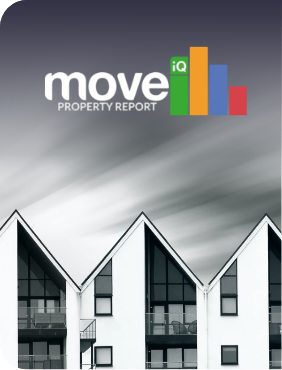
Does Airbnb Count as Renting?
Love it or loathe it, one thing’s for sure – Airbnb is here to stay, but does Airbnb count as renting?
The online platform has grown and grown with several smaller rival services offering much the same thing. That is, an opportunity for homeowners to rent out accommodation ranging from a single room to the entire property.
It’s a great way for households to earn additional income but as with so many things, what began as a simple idea has now become more complicated. So does Airbnb count as renting? Let’s take a look.
Letting a single room
If you’re interested in becoming a host on Airbnb or a similar service, it’s easy. You register for free and list your room, annexe or property on the website, with photographs and a cost per night to the customer.
There’s good news for anyone letting just a single furnished room as this falls within the ‘Rent A Room’ scheme. Under the scheme you can earn up to £7,500 tax-free each year, or if you share ownership of the property with a partner, £3,750 each tax-free per year.
To qualify you must offer fully furnished living accommodation in one room of your main home while you remain living there. You’re not allowed to rent it out as, say, an office or other workspace. If you earn over £7,500 from the room per year, you pay tax on the rest.
So far so simple, and few people have any issues with renting out a single room.
Things get a little more complicated and may be subject to new laws in the future when an entire property is let out.
Letting an entire property
Letting out an entire house or apartment means you may reach the £7,500 annual limit if the price per night is substantial, and there are several other issues to bear in mind too.
Firstly, if your home is in a residential neighbourhood in a popular tourist area, are you upsetting neighbours by encouraging multiple visitors to your street or apartment block?
Secondly – and the cause of many stories in the press – is there a risk of parties or anti-social behaviour by your guests if they organise events in the house or flat during their stay?
Of course, very few hosts would ever want or encourage these problems but if a whole home is let, the owner is not present and it can be difficult to guarantee good behaviour.
What’s more, wear and tear on household items will be more obvious (and more costly) if you have multiple guests and frequent bookings, no matter how well-behaved they are.
Even so, it’s worth saying that the vast majority of houses or flats let via Airbnb or a similar service create no problems at all for the owners or neighbours.
Airbnb says eight out of 10 hosts have only one property listing and that on average hosts let for just three nights per month, securing around £6,000 per year in total from rent.
New regulations are on the way
So why, you might ask, is regulation necessary for Airbnbs and similar lets? The answer is down to the supply and demand of all kinds of rental properties.
Some landlords have switched their properties from long-term letting to families to short-term lets aimed at travellers. This is because short-term renting is more profitable and does not need to meet stringent health and safety and licensing regulations that apply to buy-to-let homes.
In making this switch, landlords have effectively removed their houses or apartment from the mainstream rental sector, which is already short of supply to meet demand.
The government is proposing two things.
One is a compulsory register of Airbnb and other short-let hosts, so local councils have a record of how many of these properties exist on their patch. The other is to give councils the power to make people get planning permission before using their home as a short let.
This means councils can cap the number of short lets in their area and minimise the loss of properties from the traditional long-term rental sector.
So is it worth ‘short-term renting’?
These proposals will take some time to reach law if they do so at all. And if they do become law, they will probably apply to whole properties and not individual rooms.
So, if you’re letting a spare room only, or letting your whole home for just a few weeks a year when you’re on holiday, the current situation may not change. In this situation, Airbnb can be a good way of making a little extra income, especially during the cost of living crisis.
If you are a landlord already, or you’re considering buying a property to let only to visitors for a few days at a time, perhaps consider the benefit of instead letting out to a family who needs a home for the long term. Their need is greater than that of tourists.
Last Updated: September 22nd, 2024









